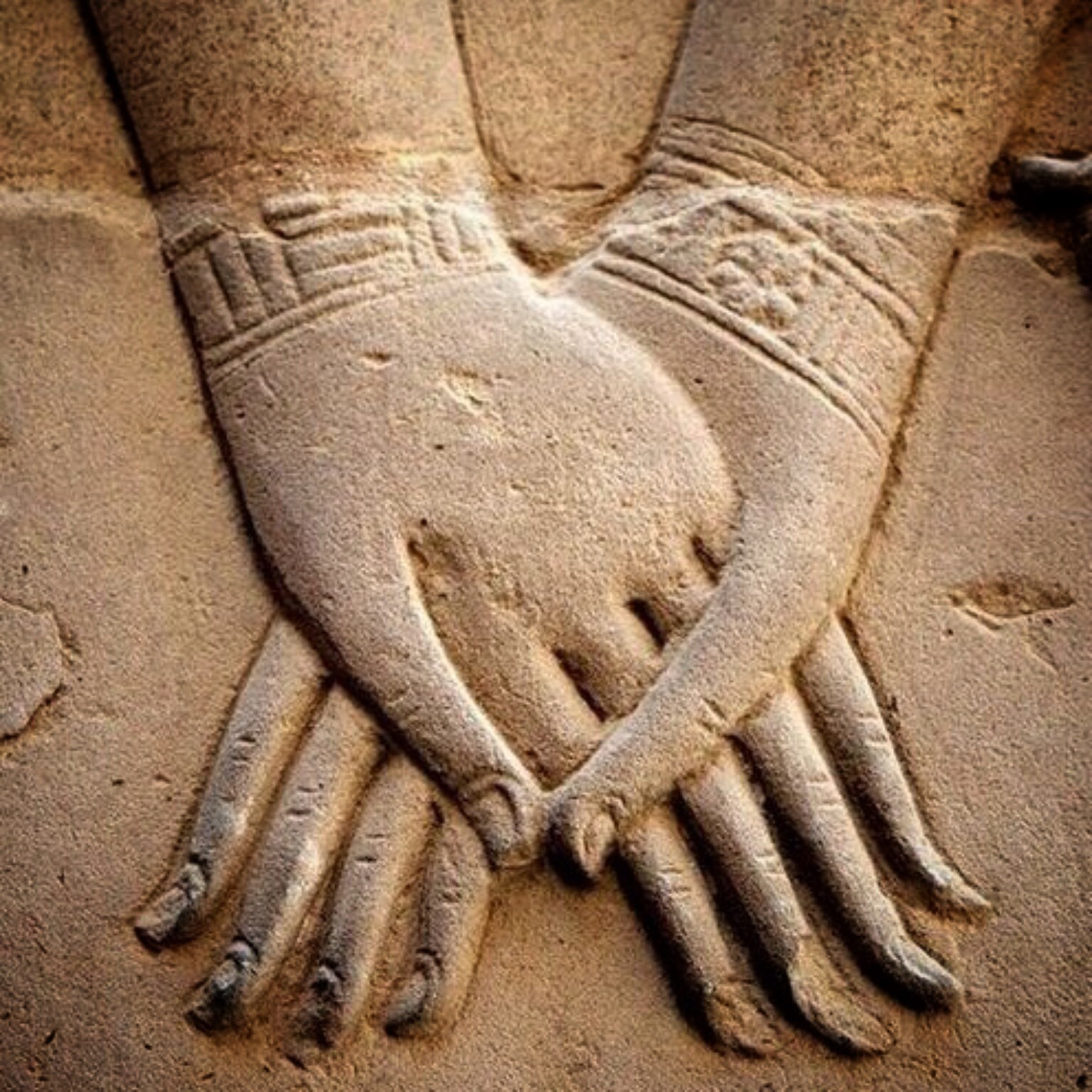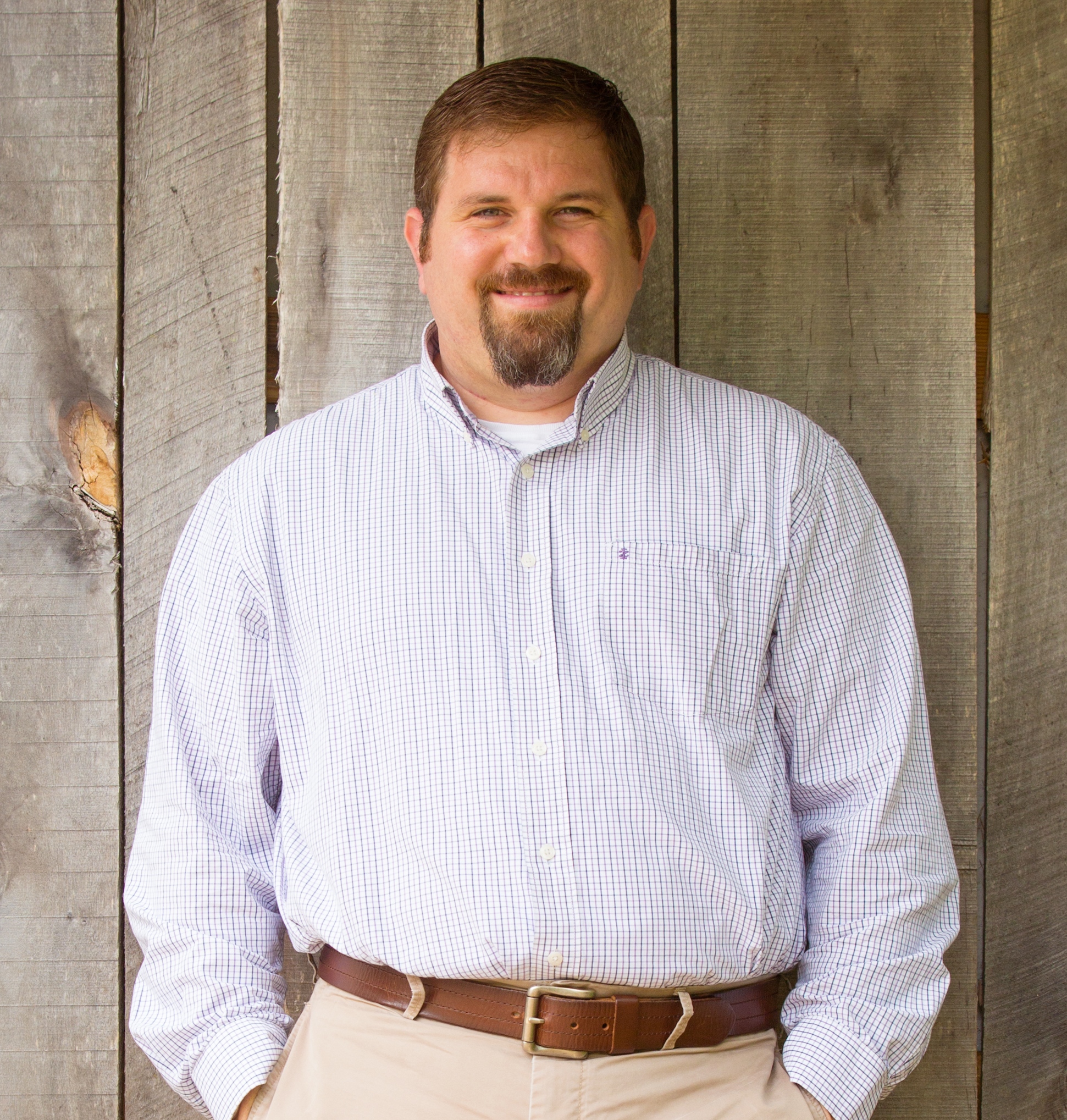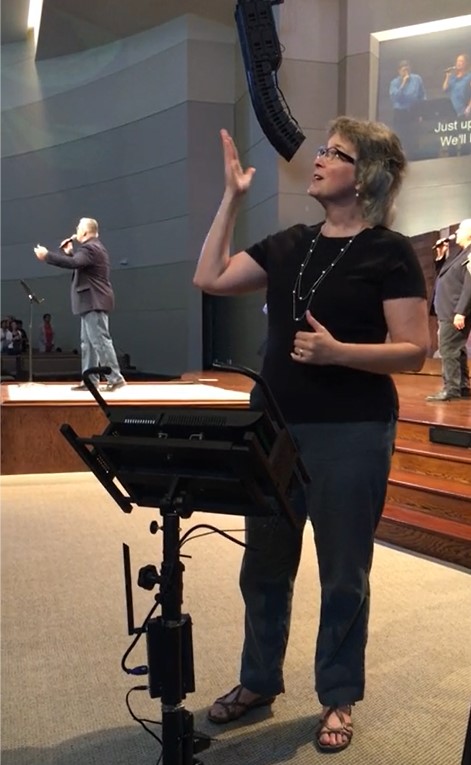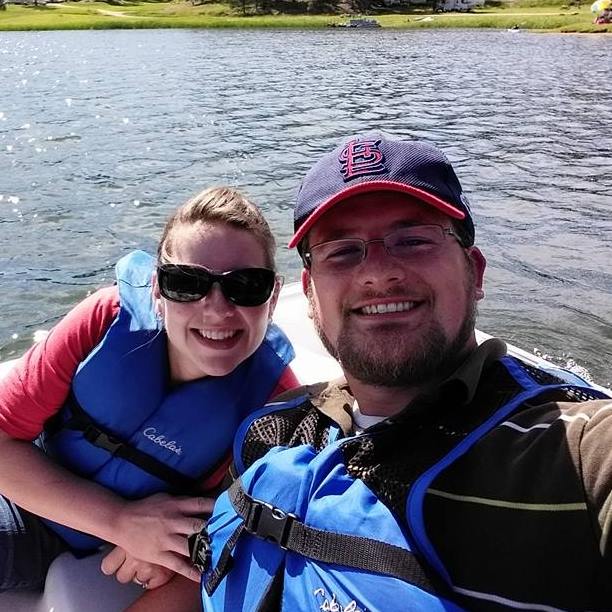Seeing God Through a Different Lens
Throughout my years of ministry I have come to believe that we all have pictures of God in our heads that hard to shake. Some people can’t get past viewing God as an angry figure that they see in the Old Testament. At the other end of the spectrum, others insist that the New Testament should be read as a love-letter to humanity. Whichever lens we view God through, it radically impacts the relationship we have with God and his people.
Given the importance of the lenses we select, I like to find different approaches to viewing God. While we often lock ourselves into one lens, I propose that no single lens can correctly capture the vastness of God. Consider the various “I am…” statements found in John’s Gospel. Jesus himself used multiple images to help people understand his identity and his purpose.

With all that said, I propose the question,
“If God was to choose a human career, what would he choose?”
When I look at a sunset, I think He might be an artist.
When I look at nature, I think He might be a scientific expert in every field of science.
When I read the prophets, sometimes it sounds like he’s a stay-at-home parent caring for his children.
When I reflect on my past perceptions of God, I predominantly see Him in the legal profession. This perspective certainly has many scriptural images to support it. As the Supreme Being all creatures come before Him seeking his judgment, advice, and help. He wrote the law and gave it to Moses. He holds Israel accountable to that law, and when necessary, judges and punishes Israel.
This legal relationship with God arises from verses such as:
Hebrews 9:27 “Just as people are destined to die once, and after that to face judgment.”
Matthew 12:36 “I tell you that everyone will have to give account on the day of judgment for every empty word they have spoken.”
Matthew 25:31-32 “When the Son of Man comes in his glory, and all the angels with him, he will sit on his glorious throne. All the nations will be gathered before him, and he will separate the people one from another as a shepherd separates the sheep from the goats.”
Clearly, I’m not suggesting we should delete these legal descriptions from the Bible. They do appear in Scripture and in the mouth of Jesus. I suspect that for many Christians the return of Jesus is intrinsically linked with the “day of judgment”. However, God’s people have not always regarded their relationship with God solely in these legal terms.
The prophet Isaiah wrote in chapter 25:6
On this mountain the Lord Almighty will prepare
a feast of rich food for all peoples,
a banquet of aged wine—
the best of meats and the finest of wines.
The context of this passage tells that it references the Day of the Lord as 2 verses later it describes God swallowing up death. Isaiah describes God bringing all things to a conclusion by picturing it not as a Day of Judgment, but as a feast, a party.
This leads me to consider the prospect of God being in the hospitality industry.
- In Genesis 2 God doesn’t invite Adam over to the garden to help him with the landscaping and then feed him pizza. Rather, God gets Eden just the way he wants it, then with the (natural) lights dimmed he introduces Adam to Eve. God is the event host who prepared specifically for his guests.
- After God brought the Israelites out of Egypt he made a covenant with the nation when he gave them his law at Mt Sinai. To ratify the covenant, God called Moses, Aaron, some priests, and clan elders to come up on Mt Sinai with him. Exodus 24:11 describes what happens next, “But God did not raise his hand against these leaders of the Israelites; they saw God, and they ate and drank.” God hosted a meal for the nation’s leaders.
- While Psalm 23 isn’t eschatological, its imagery of God providing a table for his people fits with the description of God’s concern for hospitality. The psalmist doesn’t simply describe God as a shepherd telling his sheep to go find something to eat.
In verse 5 the psalm switches to describe God as a host, preparing a banquet and welcoming his guests by providing them with refreshing oil. Anointing someone’s head with oil in Bible times was a courtesy, refreshing them after a hot and dusty walk. The oil would have been perfumed with fragrant herbs and spices. It was a sign of welcome and respect. Anointing wouldn’t have been a routine thing, practised when a neighbour popped round for a chat or to borrow some flour. It was for formal occasions, like a gathering of elders or teachers – or a banquet. https://tinyurl.com/yxp5zj2s - Jewish religious thinkers who lived between the testaments had a variety of views regarding the nature of the afterlife. One of those views is found in the book we call 1 Enoch describes eternity as a time of eating a meal with God. In 61:14 it says of the righteous on the Day of the Lord,
“And the Lord of Spirits will abide over them,
And with that Son of Man shall they eat
And lie down and rise up for ever and ever.

- Luke 14 finds Jesus eating a meal in the home of a Pharisee. As they eat one of the guests says to Jesus, “Blessed is the one who will eat at the feast in the kingdom of God.” This statement illustrates a picture of the afterlife that features a great banquet for the righteous. He makes this statement with the assumption that Jesus, and the others at the table, would grasp his reference. While Jesus then tells a parable that challenges the man’s confidence that he’ll be at that particular table, he accepts the imagery of an eternal feast.
- In the previous chapter Jesus himself referenced this feast. “There will be weeping there, and gnashing of teeth, when you see Abraham, Isaac and Jacob and all the prophets in the kingdom of God, but you yourselves thrown out. People will come from east and west and north and south, and will take their places at the feast in the kingdom of God.” (Lk 13:28-29) His reference to people coming from all points of the compass expands the Jewish expectation of the heavenly feast to include righteous Gentiles who will get to sit with he Jewish heroes of faith: Abraham, Isaac, and Jacob.
- In Jesus’ ministry some have suggested that the feeding of the 5,000 (Matthew 14) and the 4,000 (Matthew 15) should be regarded as Jesus enacting Isaiah 25:6.
- At the Passover meal the night before his death, Jesus tells his disciples that this will be his last Passover with them “For, I will not eat it again until it finds fulfillment in the kingdom of God.” (Luke 22:16) The next Passover meal that Jesus shares with his disciples will take place in the afterlife, in the Kingdom of God. Notice that Jesus didn’t say, “See you on Judgment Day.” but, “I’m looking forward to eating with you guys again.”
He follows up on this in v29-30 as he tells those same disciples, “And I confer on you a kingdom, just as my Father conferred one on me, so that you may eat and drink at my table in my kingdom and sit on thrones, judging the twelve tribes of Israel.” Jesus’ picture of eternity includes the image of sharing meals with his disciples! - John’s gospel also tells us that earlier that night Jesus told his disciples that he was leaving them, then comforted them by saying, “My Father’s house has many rooms; if that were not so, would I have told you that I am going there to prepare a place for you?” (John 14:2) Perhaps because Jesus worked as a carpenter before beginning his ministry, but I’ve always pictured this verse as meaning that Jesus was leaving to construct mansions for all his followers. He was going to spend the 2 or 3 thousand years with a heavenly hammer in his hand. But Jesus’ language could equally mean that God’s already constructed the rooms, so now Jesus is going to stock the fridge, turn down the covers, and place a chocolate mint on each person’s pillow.
- Finally, Revelation 21:3-4 pictures the culmination of history with God’s holy city coming to settle upon the earth. While it doesn’t mention a meal, verse 4 paraphrases Isaiah 25:7-8 where death will be eradicated, and God will wipe away tears. It’s hard to picture verses 7-8 being fulfilled, but not verse 6. The very last verses of Revelation conclude with an invitation to drink the water of life and to eat from the tree of life.
I understand that these images of a messianic banquet are just images. I don’t imagine that eternity will be spent at a neverending buffet table.
My goal in pointing to all these verses has been to highlight an alternative view of eternity and of God. God isn’t just the judge seated on a high throne waiting to slam down the hammer. He’s also the God who prepares food and drink for us. He serves us. He washes our feet. He anoints our heads with oil. He’s prepared a room for us to stay. What if God is in the hospitality industry as much as the legal profession? Does that alter your view of God?
At times God’s running the restaurant.
On other occasions He’s managing a hotel.
He’s also consistently portrayed as an event manager as He plans a party / feast / banquet to culminate time as we know it.
Whichever lens we use, God is waiting for us with open arms.
Oh, that we might have the confidence of the Pharisee: “Blessed is the one who will eat at the feast in the kingdom of God.”


 If you have a moment today read
If you have a moment today read  At the time of the church’s application of Jesus’ teaching on love, there were several groups teaching about it, and some were teaching it as a technique of sorts.
At the time of the church’s application of Jesus’ teaching on love, there were several groups teaching about it, and some were teaching it as a technique of sorts.

 Within the story of Ruth, we find love-in-action-hesed at play in a number of places. Ruth’s refusal to leave Naomi? Hesed. Ruth’s willingness to glean for food? Hesed. Boaz going above and beyond to let Ruth harvest with his workers instead of gleaning, and sending her away at the end of the day with months worth of grain instead of what she picked up that day? Hesed. Naomi devising a plan for Ruth to marry Boaz? Hesed.
Within the story of Ruth, we find love-in-action-hesed at play in a number of places. Ruth’s refusal to leave Naomi? Hesed. Ruth’s willingness to glean for food? Hesed. Boaz going above and beyond to let Ruth harvest with his workers instead of gleaning, and sending her away at the end of the day with months worth of grain instead of what she picked up that day? Hesed. Naomi devising a plan for Ruth to marry Boaz? Hesed.

 Can you tell us a little more about the specific needs you have noticed while working with the hearing impaired? What do you mean by the “spiritual childhood” you are witnessing as you interpret for them in worship?
Can you tell us a little more about the specific needs you have noticed while working with the hearing impaired? What do you mean by the “spiritual childhood” you are witnessing as you interpret for them in worship? Jennifer Rundlett
Jennifer Rundlett Peter Horne moved to the United States from Australia in 1999 to pursue training for ministry. Having filled the roles of children’s minister, youth minister, and college minister in various locations around the US and Australia, he has served as the minister for the Lawson Rd Church of Christ in Rochester, NY since 2008. He is married to Julie who constantly finds him standing in front of cabinets and drawers she needs to open, but loves him anyway.
Peter Horne moved to the United States from Australia in 1999 to pursue training for ministry. Having filled the roles of children’s minister, youth minister, and college minister in various locations around the US and Australia, he has served as the minister for the Lawson Rd Church of Christ in Rochester, NY since 2008. He is married to Julie who constantly finds him standing in front of cabinets and drawers she needs to open, but loves him anyway.
 Fear will make you do strange things. It will make you do terrible things.
Fear will make you do strange things. It will make you do terrible things. I sat across the table with one of my closest friends and mentors, lamenting to him, “Since when did discipleship become only about Bible study?” Later that day, I read this: “You are hungry for knowledge; you thirstily drink up biblical ideas; you long to be Christlike; yet all of that knowledge doesn’t seem to translate into a way of life. It seems we can’t think our way to holiness.”* You’re good, God…
I sat across the table with one of my closest friends and mentors, lamenting to him, “Since when did discipleship become only about Bible study?” Later that day, I read this: “You are hungry for knowledge; you thirstily drink up biblical ideas; you long to be Christlike; yet all of that knowledge doesn’t seem to translate into a way of life. It seems we can’t think our way to holiness.”* You’re good, God…

 The harlot’s husband says something even more shocking!
The harlot’s husband says something even more shocking! Hosea 2 ends like a letter between two lovers. No more false lovers, no more war. Israel will lie down in safety, betrothed to God forever in righteousness and justice, in lovingkindness and in compassion.
Hosea 2 ends like a letter between two lovers. No more false lovers, no more war. Israel will lie down in safety, betrothed to God forever in righteousness and justice, in lovingkindness and in compassion.
 Rob Sparks is a Jesus follower, a father and husband, a nerd, and a paper pusher. He worships and serves with the Fernvale Church of Christ in Middle Tennessee and occasionally blogs at
Rob Sparks is a Jesus follower, a father and husband, a nerd, and a paper pusher. He worships and serves with the Fernvale Church of Christ in Middle Tennessee and occasionally blogs at